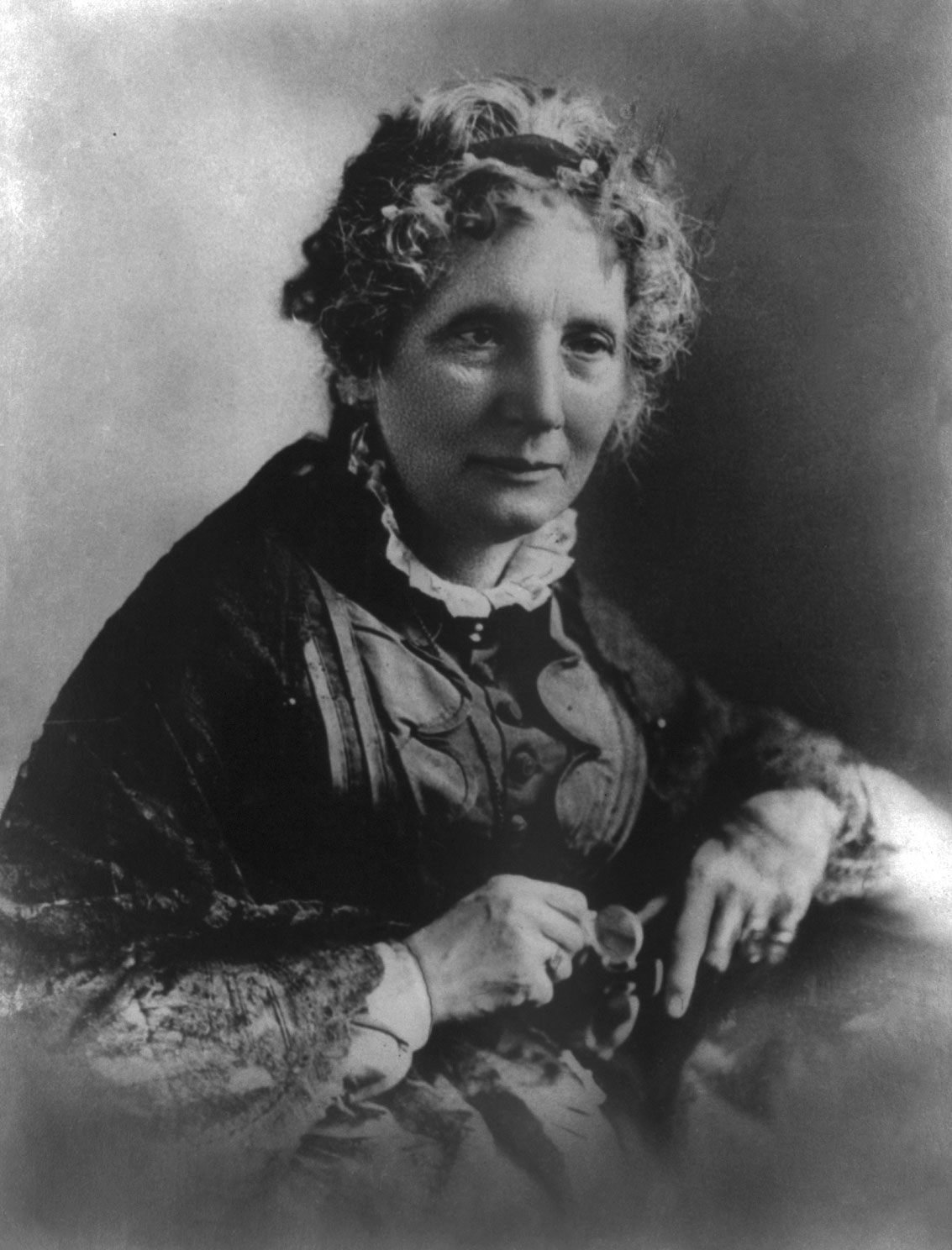Harriet Beecher Stowe, born on this day in 1811, was an American abolitionist and author, best known for her anti-slavery novel "Uncle Tom's Cabin", published in 1852.
Stowe was born in Litchfield, Connecticut to a large and deeply religious family that produced other notable theologians and abolitionists, such as Henry Ward Beecher, Charles Beecher, and Edward Beecher.
Harriet's own politics were influenced by direct experiences with black people terrorized by race riots in the 1820s and 1830s, as well as the Lane Debates on Slavery, which led to the founding of Oberlin College after a mass exodus of students from Lane Theological Seminary.
Later in life, she was an outspoken critic of slavery and supported the Underground Railroad, temporarily housing several fugitive slaves in her home. It was during this period, in the decade before the Civil War, that she authored "Uncle Tom's Cabin". Within a year of its publication, the book sold an unprecedented 300,000 copies and was widely read in both the United States and Great Britain.
Harriet Stowe was also an early feminist thinker, connecting the struggle for black liberation to the struggle for women's liberation more broadly, writing in 1869 that "the position of a married woman...is, in many respects, precisely similar to that of the negro slave. She can make no contract and hold no property; whatever she inherits or earns becomes at that moment the property of her husband...Though he acquired a fortune through her, or though she earned a fortune through her talents, he is the sole master of it, and she cannot draw a penny".
